Afghanistan's first female conductor
- Published
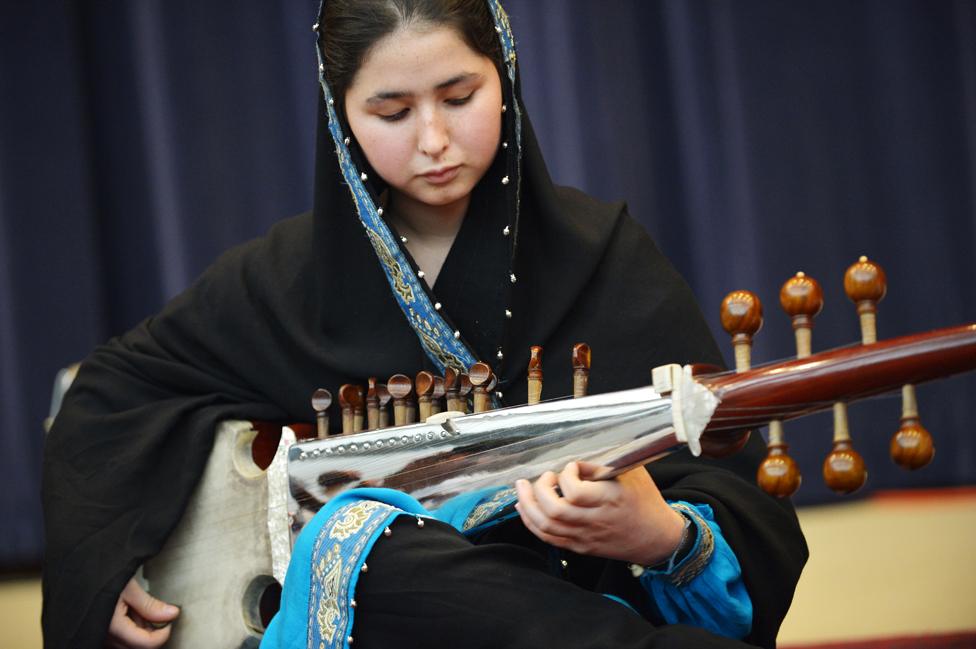
For many years, the Taliban banned music and the education of girls in Afghanistan - and although many women still find themselves restricted, one 17-year-old has become the country's first female conductor.
Kabul is a noisy place with helicopters, sirens, and heavy traffic. But walking into a building in one of the city's quieter neighbourhoods, I'm welcomed by quite a different sound.
Boys and girls are playing the piano, cello and flute as well as traditional Afghan stringed instruments such as the rubab and sarod. This is the Afghanistan National Institute of Music - the only school of its kind in the country.
The female students have just finished their first concert. Their male colleagues were watching and are now milling around, playing and chatting before heading home at the end of a big day.
What was so special about this concert - apart from the fact that it was an all-female ensemble playing music to a big audience in the middle of violence-ridden Kabul - was that it was led by the country's very first female conductor, 17-year-old Negin Khpolwak who is also a student here.
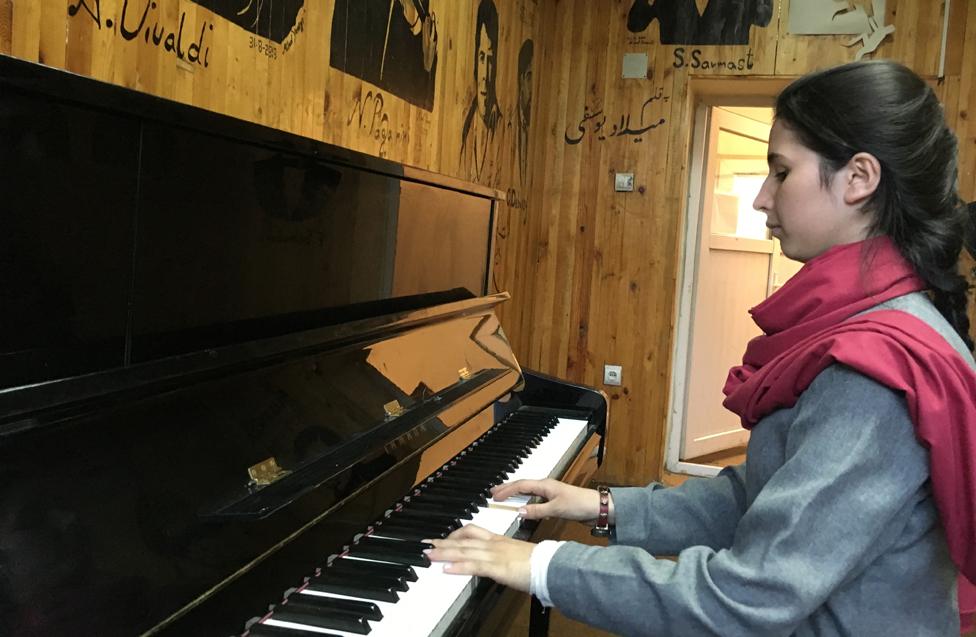
Now, she has retreated along a concrete corridor to one of the rehearsal rooms where she's sitting at the piano playing one of her favourite pieces - a piano sonatina in C major by the Italian composer Muzio Clementi.
I can see she's still learning it but what she lacks in experience, she makes up for with her spirit and passion.
"Khosh Amadeed - welcome," says Negin with a shy smile. "Today my hands are aching a bit so I am not on a top form. But I love practising the piano.
"All I want is to become a very good concert pianist and conductor, not only in Afghanistan, but in the world," she says.
"So did you grow up around music?" I ask. "No," she says looking startled.
She comes from a poor family in Kunar province, a conservative area - one of the strongholds of the Taliban insurgency in the north-east of Afghanistan.
"Girls in Kunar don't go to school and many are not allowed to study music by their families," she says. "So I had to go to Kabul to fulfil my dream. My father helped me."

The Afghanistan National Institute of Music
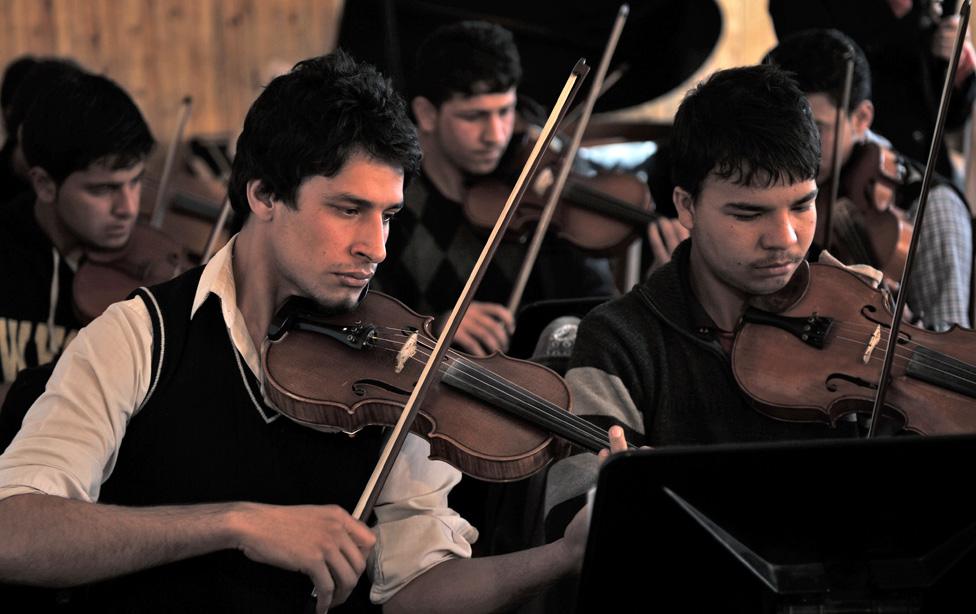
Set up in 2010 with help from the World Bank
Its teachers come from many countries including Afghanistan, the US, Australia, Russia, Colombia and India
It has a special focus on supporting the most disadvantaged members of Afghan society, particularly orphans and street vendors

When Negin was nine, he sent her to live in a children's home in Kabul so that she could get an education.
That's where she first started listening to music and watching performances on television.
She auditioned to join the institute and has been studying here for four years - of more than 200 students, about a quarter are girls.
It wasn't all plain sailing though. Negin's mother was happy for her to go to school, but didn't like the idea of her studying music. She wasn't the only one who felt this way.
"My uncle told us, 'No girls in our family should learn music. It's against tradition.'"
Under pressure from her relatives, Negin had to leave the institute for six months. Eventually her father intervened, telling her uncle, "It's Negin's life. She should study music if she wants to."
"So I came back," she says.
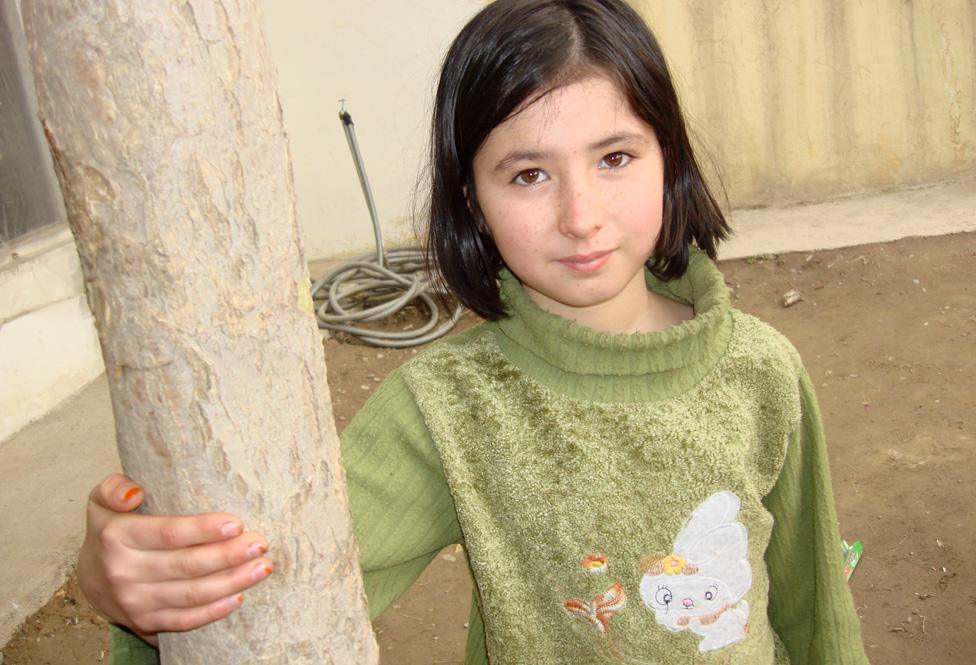
Negin as a young child after she moved to Kabul
This is a common problem, according to Ahmad Sarmast, the founder and director of the institute. "A child is enrolled with the full blessing of their parents but then an uncle or aunt or grandfather or village elder starts putting pressure on the parents to pull the child out of the music programme or from education in general."
It's not just tradition and conservatism that the institute has to contend with - there's also violence. There are many here who believe most music is sinful. Last year, one of the student concerts organised outside the campus was targeted by a young suicide bomber - one person in the audience was killed while Sarmast's hearing was damaged and eleven pieces of shrapnel lodged in his head.
"Does that not scare you, the prospect of further bombings?" I ask him. "No," he says. "We are part of this struggle. We are standing against violence and terror with our arts and culture, particularly with music. That's one of the ways we can educate our people about the importance of living in peace and harmony, rather than killing each other."
He looks at Negin. "Part of my inspiration is her and students like her, who keep coming here despite the difficulties."
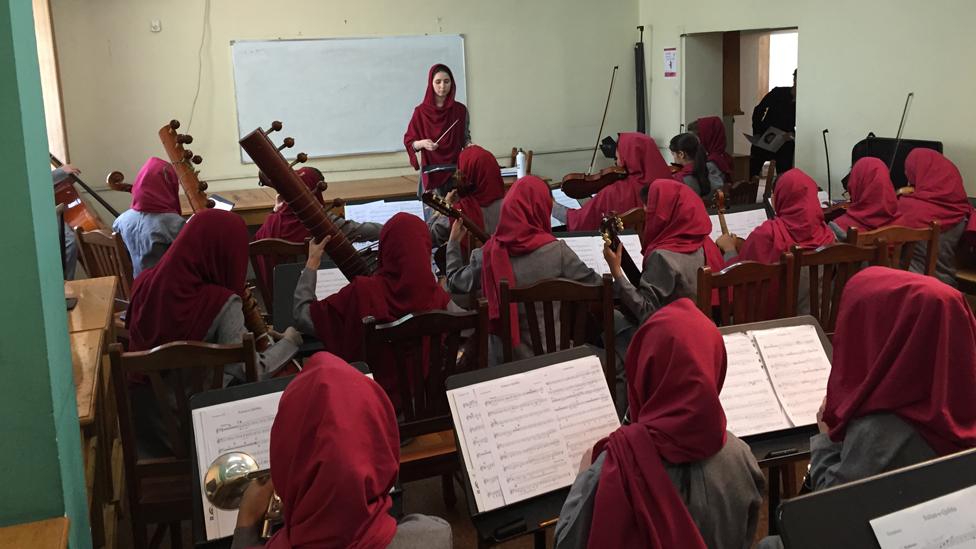
In February 2013, Negin was chosen to represent the institute on a trip to the US where she performed at the Carnegie Hall in New York and the Kennedy Center in Washington DC, playing the sarod.
"It was so amazing. I felt so good but I had always wanted to become a pianist," she says.
So after she returned to Kabul, she started learning the piano and took up conducting as well.
"It was my first time [conducting a performance] today. I was so happy. I cried when I got on the stage and saw all the people in the audience. I want Afghanistan to be like other countries in the world, where girls can become pianists and conductors."
With that in mind, she's also been practising conducting male and female students together in the mixed orchestra.
"So, when you become a famous pianist and play abroad, can I come along for free? Or will I have to pay for an expensive ticket?" I ask.
"Hmmm, no, sorry you have to pay," she jokes. I say goodbye promising, one day, to come to one of her concerts.
And as we drive through checkpoints amid the noisy traffic, I can still hear Negin's beautiful music along with the faint but still persistent promise of hope in Afghanistan.
Additional reporting by Huong Ly.
How to listen to From Our Own Correspondent, external:
BBC Radio 4: Thursdays at 11:00 and Saturdays at 11:30
Listen online or download the podcast.
BBC World Service: At weekends - see World Service programme schedule or listen online.
Subscribe to the BBC News Magazine's email newsletter to get articles sent to your inbox.